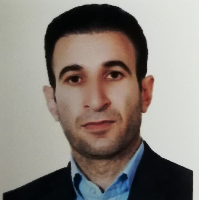Spatial Linkage and Lifestyle of Worn in Peripheral Settlements Case: Selseleh
In the last few years in rural areas of the country, women's attention to urbanization has given them a new attitude, and has accompanied them with intellectual changes in values, norms, customs and demographic behavior. It has set the stage for changes in their lifestyles and given them a certain orientation. The purpose of this study was to investigate the spatial links and lifestyle of elderly women in dynasty Selsaleh. The method used is descriptive-analytical and the method and tools of data collection in the theoretical study is library and the field study is done through questionnaire and observation. Spss software was used for data analysis. The statistical population of this study is 10 villages of Selsaleh County that 166 women were selected as sample by Cochran formula and distributed randomly. The results showed that there is a significant and positive relationship between spatial linkage components and lifestyle components; therefore, the components of change in clothing, clothing and fashion have the highest mean (3.90) and the mean (3.85) respectively. Therefore, spatial links have provided the basis for changing women's lifestyle in economic, social, cultural, and environmental dimensions in the study areas.
-
Analysis of the Effects of Urban Tourism Attractions on Citizen’s Leisure Time (Case study: Khorramabad city)
*, Fahime Yousefzadehsohailabadi
Journal of Tourism Management Studies of the Smart Era, Autumn and Winter 2024 -
Comparative Analysis of the Level of Expansion and Acceptance of Social Insurance Policies in Iran
Hamed Ghadermazi, *, Roya Almasi, Bayan Mobaraki
Majlis and Rahbord, -
effective greenhouse marketing strategies in Jiroft rural areas County with emphasis on SWOT and QSPM
*, Seyyed Reza Hosseini Kohnouj, Mohammad Kharaj
Journal of Economic geography research, -
An Analysis of the Adaptability of Tourists' Priorities with Their Objective Perception of Tourism Opportunities (Case Study: Tarom Tourism Target Villages)
Lyla Mafakheri, *, Hamed Ghadermarzi
Rural Development Strategies,



